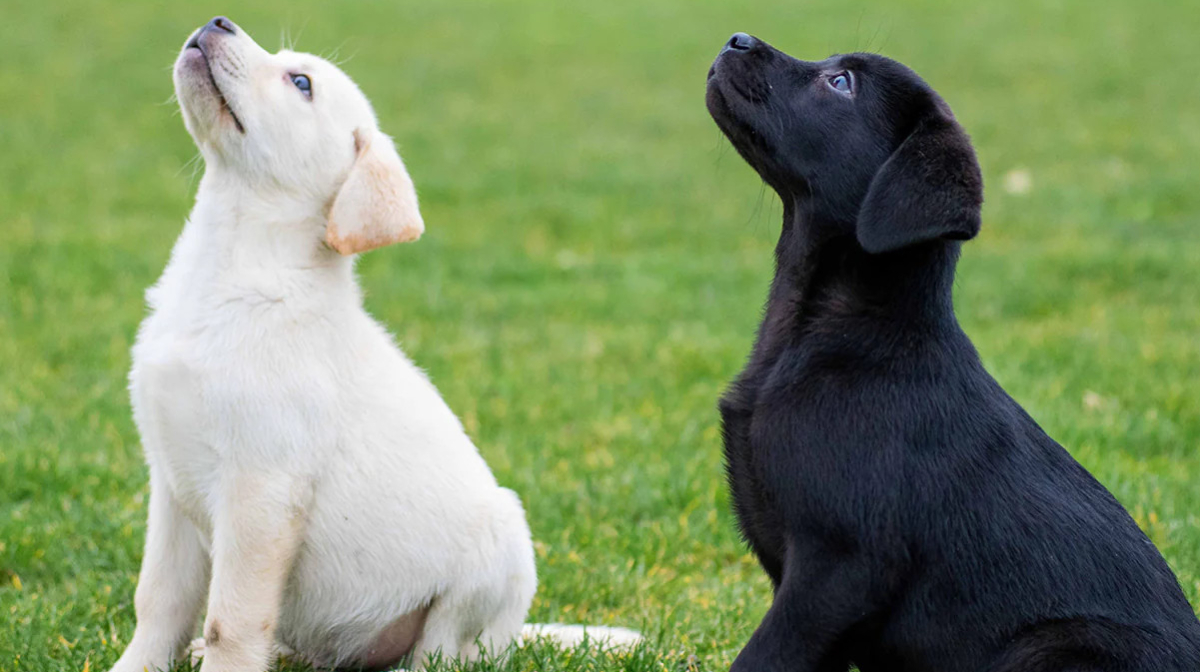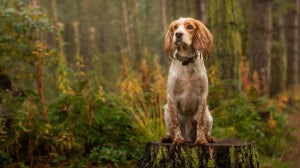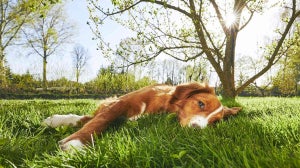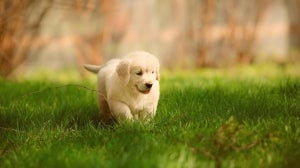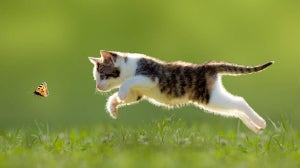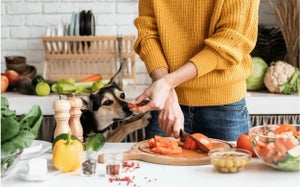
Things to consider before getting a puppy
Before welcoming a new puppy into your home or making a list of all the things you need for a puppy, you need to think carefully about several factors. You should consider the long-term cost of looking after a dog, your lifestyle, your home and if you are introducing the puppy to other pets or family members carefully.CostA puppy is for life and that means a lot of financial responsibility! From food to vet bills, the cost of owning a dog typically reaches £2,000 a year or more. Many factors will contribute to the overall cost, including the breed, size of the dog and overall grooming requirements. Routine health costs should also be included, such as microchipping, vaccinating and insuring your new puppy. Your LifestyleYour new puppy will require your time and attention to ensure they stay happy and healthy. This includes socialisation and in some cases professional training. If you have a busy lifestyle with many travel or work commitments, you may want to reconsider if a puppy is right for you as they need a consistent routine. Read our guide on how long you can leave your new puppy alone to help you make the best decision. It can take 2-3 weeks to settle your new puppy into their new home and those first weeks are crucial for successful training and socialisation. Certain breeds may also be more suitable for your lifestyle, for example, some breeds are more suited to people with young families so it is important to be honest about how much time you have to give to a new puppy. Home and FamilyYour home, family and existing pets will influence how your new puppy settles in. Certain dogbreeds are more energetic than others and will need more space to explore, including outdoor spaces, so it is important to evaluate all aspects of your home before introducing a new puppy into it.
New pups are encouraged to interact with children of all ages as part of their socialisation, however, if you have young children it is important to remember that all interactions will need to be supervised by an adult. Puppies use their mouths to explore their new environments and can be more boisterous, so parents of young children need to factor this into their decision-making.
Introducing your new puppy to current dogs, cats or other pets should also be a key factor in your decision to bring a puppy home. Some pets are more likely to get on with a puppy than others, for example, introducing your new puppy to a cat or dog who has not interacted with other animals may be more difficult than introducing well-socialised pets. All new introductions to your puppy should be made gradually and under supervision. You will need to be patient with your new puppy as they can take weeks or months to settle in.
New puppy checklist
There are many different puppy products on the market and the variety can be overwhelming for new pet owners. In our new puppy checklist, you’ll find the most essential things you need for a puppy.
Food and water bowls
Food and water bowls should be shallow enough for small mouths to eat and drink out of. We advise bowls with rubber on the bottom to stop them slipping – alternatively, you can place them on a mat to make tidying up any food spills or mess easier. Check out our puppy feeding guide for more information about your new puppy’s nutritional needs and feeding requirements.
Collar or harness with tag
Small adjustable collars are best for puppies, though it’s important to gradually introduce your puppy to wearing an adjustable collar and supervise them at all times when they are wearing one. Legally dog tags must have the owner’s name and address (including postcode) on them. Adding your phone number is also a good idea, as this will help others contact you if your pup gets lost.
Dog lead
There are many types of dog lead available, but a simple thin lead will be fine for puppies. You’ll only be taking them for short walks to start with, once they are older you can think about getting a different type of lead.
Dog poo bags
Although you won’t be able to take your puppy outside until they have been fully vaccinated, it’s still a good idea to buy dog poo bags beforehand. You’ll need plenty of these, so stock up – and try to go for eco-friendly options where possible.
Puppy toys
Puppies love to play, so making sure they have an assortment of different puppy toys is advisable for all that bonding playtime you’ll be doing with your new friend. Check that any toys you give your puppy are age-appropriate, chew-friendly and don’t have small parts, which can break off and pose a choking hazard or foreign body obstruction. Rope toys are ideal for puppies to chew on, but you should take care to ensure they don’t ingest bits or play tug of war with them as this game can damage their teeth and gums. Puppies love chewing and by providing them with chew-safe toys you can help to keep your clothes, shoes and possessions safe from little teeth.
Dog bed or crate
Dogs are den animals, so they feel most at home with something to sleep in. A crate or bed will ensure your puppy has a safe space to sleep and feel secure.
Grooming brush or comb
A playful and curious puppy can make a mess, so a good quality grooming brush or comb will be essential, especially for breeds with longer or thicker fur. You may also want to purchase some special dog shampoo before you give your puppy their first bath.
Dog toothpaste and toothbrush
It’s a good idea to start brushing your puppy’s teeth from a young age, so they have time to get used to it. You can start by gently using your finger to touch your puppy’s mouth, easing them into the process. Once they are comfortable with this, you can put a small dot of dog toothpaste on your finger, before progressing to a dog toothbrush. Never use human toothpaste as fluoride is toxic to dogs.
Carpet cleaner
There will likely be a few accidents during the first few months of getting your puppy. A pet-safe carpet cleaner or household spray will come in handy if these do occur around the home before your puppy is toilet trained. If and when accidents happen, don’t scold or shout at your puppy. Instead, praise them when they get it right.
What to feed your puppy
Your new friend will be eating a lot! Puppies require specially formulated puppy food to grow big and strong, so this is a must for any new pet owner. Puppy food should be nutritionally balanced and contain all the right ingredients for healthy development. If you are unsure about which type to buy you can ask your vet for advice. Special puppy treats can also be purchased to reward good behaviour – just remember to portion 10% of your puppy’s daily food allowance to prevent overfeeding.
New puppy tips
So far we have covered what to consider before getting a puppy, your new puppy checklist essentials and what to feed them. In this section we will elaborate on our top tips for settling your new puppy into your home and the best ways to promote positive behaviours during this vital stage of your puppy’s development.
Houseproofing
It’s a good idea to prepare your house before you bring your new puppy home. Make sure there are no hazards around the house that might pose a risk for a small puppy. This includes poisonous houseplants, stairs, cleaning products and cables. All puppies are naturally curious and love to chew, so removing potential dangers is key to preventing an accident.
Vet appointments and Vaccinations
Finally, check which vaccinations your puppy will need and book a vet appointment for a check-up. You may also wish to pencil in microchipping and neutering appointments further down the line. An effective worming and flea treatment routine will need to be established as well.
Socialisation
You could do some research into pet insurance if that’s something you wish to explore.
Puppy Socialisation classes are another thing to consider, as these will help your new furry friend get used to other dogs and improve their behavioural skills.
Sleeping area
Set aside a sleeping area separate from your puppy’s feeding spot, away from household noise. You could also ask the person you get your puppy from to give you a blanket or item of old clothing that has their mother’s smell on it, so they don’t feel homesick during the first few nights away from mum.
Puppies can be a lot of work, but the loyal and loving friend you’ll have as a result of that work is worth it. By preparing everything you need in advance, you can be confident you’re giving your new puppy all they need to grow into a happy and healthy adult dog.
New Puppy FAQs
Now that we have covered the basics of what you need for a puppy it’s time to cover new puppy FAQ’s.
Where should a puppy sleep first night?
You should prepare your puppy’s sleeping area before you bring your new puppy home. Create a safe and secure sleeping area that is separate from your puppy’s feeding spot and away from household noise. You can also ask the breeder or shelter you got your puppy from to give you a blanket or item of old clothing with their mother’s smell on it, so they don’t feel homesick during the first few nights away from mum.
It is recommended that puppies sleep in your room during the first few weeks in either a dog bed or crate, this will help them feel more safe and secure.
Should I ignore a puppy crying at night?
When your puppy first arrives in your new home they may be anxious and unsettled, this is to be expected and it can take them some time to adjust to this new way of life. Your puppy may cry at night, this is usually due to stress triggering them or because they need to go to the toilet. Do not ignore their cries, first check if they need the toilet and see if this makes a difference to their mood. If your puppy continues to cry make sure to comfort them but do not cuddle them too much as this may cause them to cry for attention. Most puppies start to sleep through the night by 16 weeks, so keep in mind that this is a phase and do not scold your puppy.
Are you keen for more helpful puppy tips and advice? Join our exclusive James Wellbeloved™ Puppy Club for 50% off our Puppy Pack to help you prepare everything you need for your adorable new arrival.

